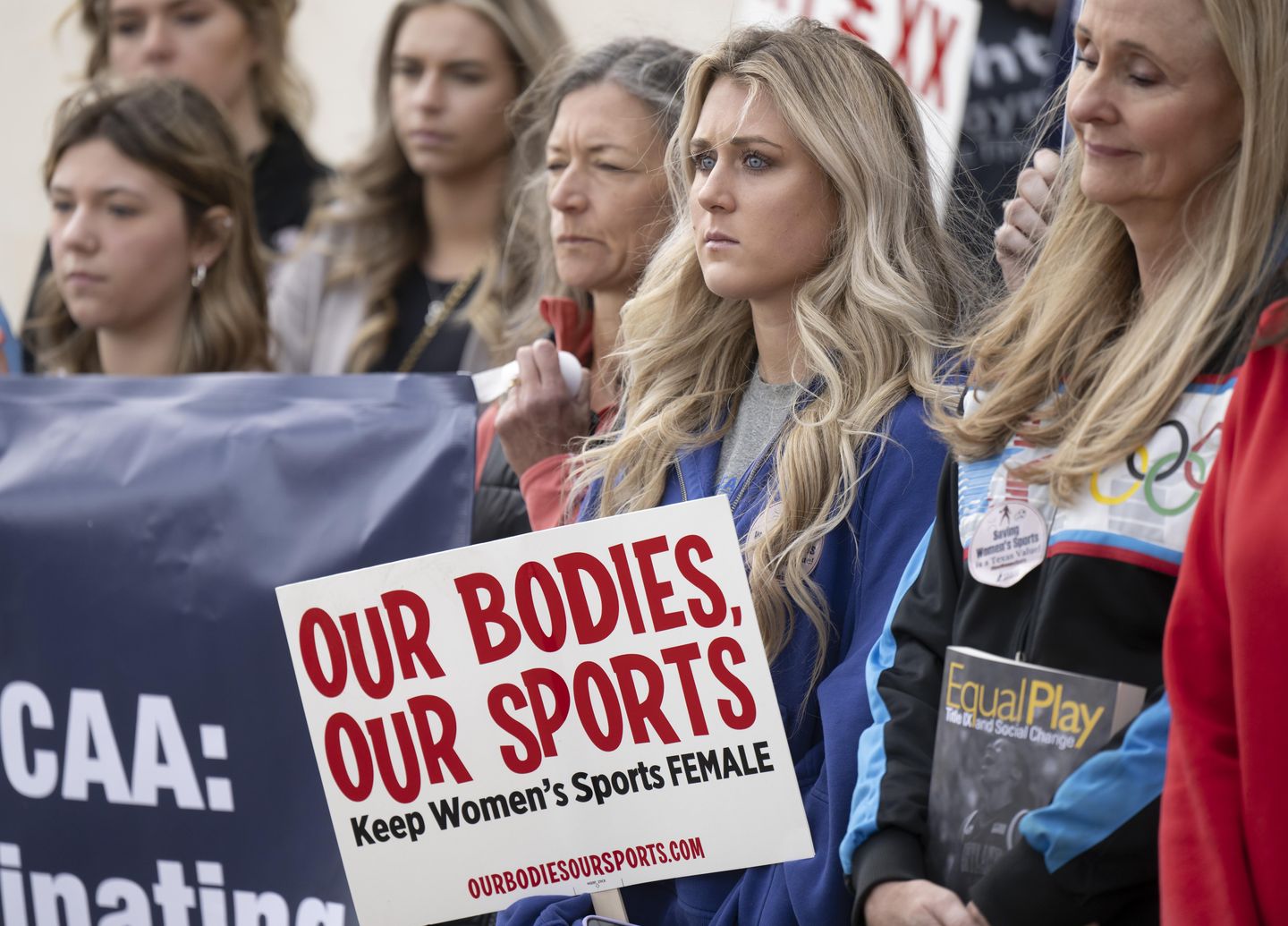President Biden’s decision to withdraw his proposed rule protecting transgender athletes has sparked a heated debate on the issue of biological males competing in female scholastic sports. While some see this as a victory for fairness and equality, others argue that it opens the door for potential discrimination and harm to female athletes.
The proposed rule, which aimed to require schools receiving federal funding to allow transgender students to participate in sports according to their gender identity, was met with both support and backlash. Advocates for transgender rights argued that it was a necessary step towards inclusivity and equality for all students, regardless of their gender identity. They believe that everyone should have the right to participate in sports and other extracurricular activities without fear of discrimination or exclusion.
On the other hand, opponents of the rule, particularly those who support the rights of female athletes, raised concerns about the potential impact on women’s sports. They argue that allowing biological males to compete against females could create an unfair advantage and threaten the integrity and competitiveness of women’s sports. Some have even gone as far as to claim that this could lead to the end of women’s sports as we know it.
President Biden’s decision to withdraw the proposed rule has only intensified the ongoing debate on this issue. While some see it as a step in the right direction towards protecting the rights of female athletes, others fear that it could set a dangerous precedent for the future of women’s sports. The question remains: should biological males be allowed to compete in female scholastic sports?
One of the key arguments in favor of allowing transgender athletes to compete according to their gender identity is the importance of inclusivity and acceptance. Advocates argue that sports should be a safe space for all students, regardless of their gender identity. By allowing transgender athletes to compete according to their gender identity, schools can send a powerful message of acceptance and support to all students.
Furthermore, supporters of transgender athletes point to the numerous benefits of participating in sports, including improved physical health, mental well-being, and social skills. By denying transgender students the opportunity to compete in sports, opponents argue that they are being deprived of these important benefits and opportunities for personal growth and development.
However, opponents of allowing biological males to compete in female scholastic sports raise valid concerns about the potential impact on the competitiveness and fairness of women’s sports. They argue that there are inherent biological differences between males and females that could give male athletes a physical advantage over their female counterparts. Allowing biological males to compete in female sports, they claim, could result in unfair competition and potentially harm the chances of female athletes to succeed.
Another concern raised by opponents is the potential for injury or harm to female athletes in contact sports. Given the physical differences between males and females, opponents argue that allowing biological males to compete against females could increase the risk of injury to female athletes. This raises questions about the safety and well-being of female athletes in a sports environment where they may be at a disadvantage due to biological differences.
Furthermore, opponents of allowing biological males to compete in female sports argue that it could have long-term consequences for women’s sports as a whole. They fear that allowing transgender athletes to compete according to their gender identity could lead to a decline in the competitiveness and integrity of women’s sports. This, in turn, could result in fewer opportunities for female athletes to excel and achieve success in their chosen sport.
Despite the withdrawal of President Biden’s proposed rule, the debate surrounding transgender athletes in scholastic sports is far from over. The issue continues to spark passionate discussions and debates on both sides, with no clear resolution in sight. As schools and athletic organizations grapple with how to address this complex and divisive issue, it is clear that more needs to be done to ensure fairness, inclusivity, and equality for all athletes, regardless of their gender identity.









